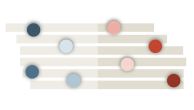
The Behaviors and Attitudes of U.S. Adults on Twitter
A minority of Twitter users produce a majority of tweets from U.S. adults, and the most active tweeters are less likely to view the tone or civility of discussions as a major problem on the site.
A minority of Twitter users produce a majority of tweets from U.S. adults, and the most active tweeters are less likely to view the tone or civility of discussions as a major problem on the site.
Pew Research Center’s political typology sorts Americans into cohesive, like-minded groups based on their values, beliefs, and views about politics and the political system. Use this tool to compare the groups on some key topics and their demographics.
In just five years, the percentage of Republicans with at least some trust in national news organizations has been cut in half.
48% of US adults say the government should restrict false information online, even if it means losing some freedom to access/publish content.
Here’s a look at how adults in the United States see cancel culture, political correctness and related issues, based on the Center’s surveys.
Americans’ trust in media varies widely by political party and whether they see the outlet in question as part of the “mainstream media.”
A new study of posts on popular public Facebook pages about the early days of the Biden administration finds that the focus of these posts, as well as the assessments of the new president, differed widely by the ideological orientation of the pages.
U.S. adults’ views of what makes a news story trustworthy vary by party affiliation, demographic characteristics and news consumption habits.
11% of stories about Joe Biden’s early days as president cited an anonymous or unnamed source, and fewer than 1% relied solely on such sources.
Differences within each party on views of foreign policy emerge based on where Americans turn for political news.








